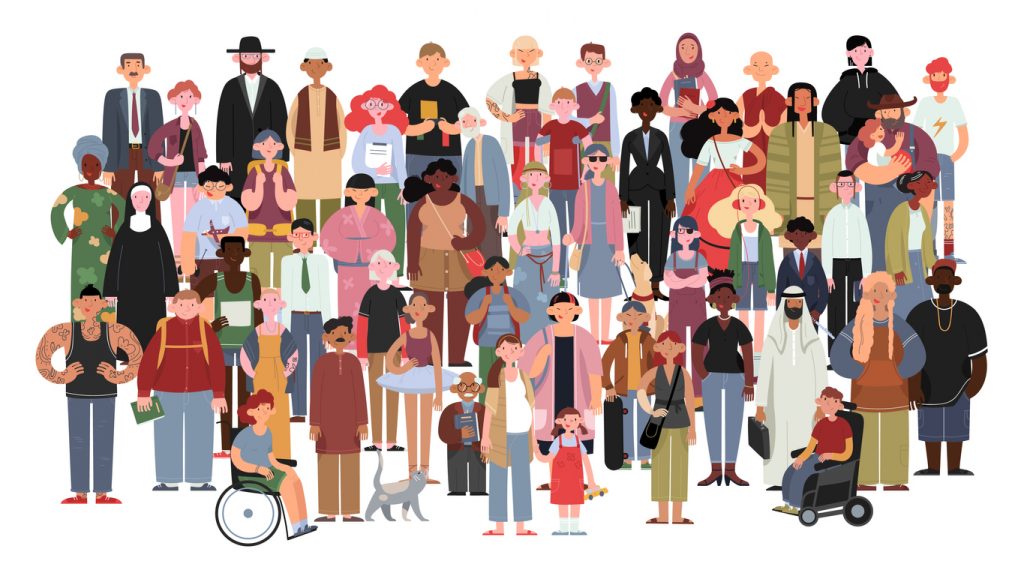October is National Disability Employment Awareness Month (NDEAM). Every October, professionals around the U.S. commemorate the contributions, accomplishments and needs of differently-abled people in the American workforce.
The U.S. Department of Labor has themed the 2021 celebration of NDEAM “America’s Recovery: Powered by Inclusion.” The mission of this theme is to reflect the importance of ensuring that people with disabilities have full access to employment and community involvement during the national recovery from the COVID-19 pandemic.
We spoke to Brian Seidel to dive into NDEAM and the importance of accessibility not just for people needing accommodations, but for everyone working in the modern workforce. Seidel, assistant director of Specialized Masters Programs at the Fox School of Business, shares his professional experience working with students with disabilities as well as his personal experience working as a higher education professional with a disability.
Seidel joined Temple in 1999 at Disability Resources and Services, supporting students with various disabilities, but primarily creating solutions and services for students with hearing impairments, from partial hearing loss to total deafness. From there, he supported the Athletics department and worked in undergraduate advising for Klein College. For the last two years, he has worked with graduate students at the Fox School.
“Months of recognition, like National Disability Employment Awareness Month, are important because you never know when disability can affect you,” says Seidel. “Learning more about people who are differently-abled opens the minds of everyone and helps them understand that there are tools that make life easier for people with disabilities, but that they can make the lives of non-disabled people better too.”
Technological advances like voice to text or automated speech transcription, which was once available only for purchase and downloadable software, are now available automatically on Zoom, email or on a smartphone. While the innovation was driven by accessibility concerns, voice to text has become a norm for nearly everyone in the 21st century.
In his personal and professional life, especially when it comes to accessibility and disability employment, Seidel has come to learn that what is good for one can be great for all. This includes the increased acceptance of remote work, sparked by COVID-19.
“The fact that the technology exists where anybody can work from anywhere now is amazing,” he says. “To effectively do certain jobs, you don’t have to physically be in an office. This is a huge advantage for people with disabilities—specifically those with mobility impairments. People have issues getting to and from places, whether it’s about the reliability of public transportation or the accommodations of the physical buildings. So it’s a huge relief for some in the disabled community for businesses and entrepreneurial ventures to be more open-minded to the fact that, hey, maybe we don’t need someone in person here, they can do their job from home.”
While months that are primarily focused on “awareness” are an important part of the process of becoming a more inclusive, equitable person or organization, it is only the first step.
“Awareness is great, but the next step, from my perspective, is to treat everyone with equal respect,” says Seidel. “Try not to treat someone with a disability as if they are not as capable as the next person. Being more inclusive is looking beyond a wheelchair or a walking cane and seeing a person who is not disabled, but is someone who might accomplish things a little differently than you might.”
From an employer perspective, Seidel says companies should treat inclusion like school: to study and do homework like a test could pop up anytime.
“Even if a company does not have any employees with physical disabilities, they will at some point,” he says. “Whether a current employee experiences an event that changes their abilities or a great candidate applies and a company wants to hire them, it is important to have accessibility plans in place versus having to scramble.”
He also encourages employers to ask questions about accommodations for current or potential employees that have disclosed a disability from the outset.
“Employers should not be afraid to say, ‘We think you’re great for this job—what is it that we can do to make your job easier? Is there any sort of office set up that you need?’ People in the disabled community are oftentimes afraid to be upfront about accommodations because they are concerned that it will disqualify them from the position. So if an employer thinks that a particular person would be great for the job—don’t be afraid to ask the question.”
Questions like these illustrate empathy to potential employees. Companies offering support and flexibility in accommodations also can improve retention and work satisfaction.
